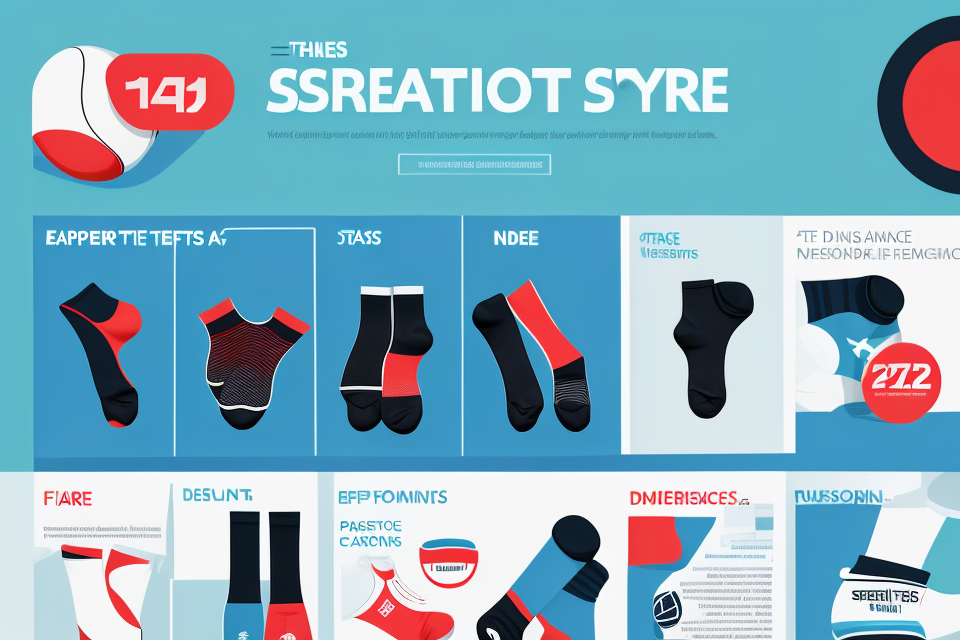Are you a passionate tennis player looking to share your knowledge with others? Or are you a seasoned coach seeking to improve your skills and take your coaching to the next level? Becoming a great tennis coach requires dedication, hard work, and a willingness to learn. In this article, we will explore some essential tips and strategies that can help you enhance your coaching skills and become a top-notch tennis coach. From developing a coaching philosophy to building effective drills and communication techniques, we will cover everything you need to know to take your coaching to the next level. So, let’s get started and dive into the world of tennis coaching!
Improving your tennis coaching skills requires a combination of ongoing education, experience, and a commitment to continually learning and growing as a coach. Here are a few key tips to help you improve your tennis coaching skills:
1. Take a coach education course: There are many different coach education courses available, both online and in-person. These courses can provide you with a solid foundation in coaching principles, techniques, and strategies.
2. Observe and learn from other coaches: Watching and learning from other experienced coaches can be a great way to improve your own coaching skills. Pay attention to how they communicate with players, how they structure practices, and how they motivate and inspire their athletes.
3. Attend coaching workshops and clinics: Attending coaching workshops and clinics can be a great way to learn from experts in the field and get new ideas for your own coaching practices.
4. Stay up-to-date with the latest coaching techniques and technologies: The world of tennis coaching is constantly evolving, so it’s important to stay up-to-date with the latest techniques and technologies. This might include attending conferences, reading coaching blogs and articles, and following experts on social media.
5. Get feedback from players and peers: Seeking feedback from players and peers can be a valuable way to identify areas for improvement and refine your coaching skills. Ask for feedback after practices and matches, and be open to constructive criticism.
By following these tips and committing to ongoing learning and development, you can continue to improve your tennis coaching skills and help your players reach their full potential.
Develop Your Tennis Knowledge
Learn from Experienced Coaches
Seek Out Mentorship Opportunities
- Reach out to experienced coaches in your area and ask if they would be willing to mentor you.
- Be prepared to ask questions and take notes during your mentorship sessions.
- Offer to assist the coach in their training sessions in exchange for the opportunity to learn from them.
Attend Coaching Clinics and Workshops
- Look for coaching clinics and workshops in your area or online.
- Take advantage of any opportunities to learn from experienced coaches and attend sessions led by experts in the field.
- Pay attention to the techniques and strategies used by the coaches and try to incorporate them into your own coaching style.
Read Books and Articles on Tennis Coaching
- Look for books and articles written by experienced coaches and experts in the field.
- Read about different coaching philosophies and techniques, and consider how you can apply them to your own coaching style.
- Take notes on key concepts and ideas, and use them to guide your own coaching practice.
Stay Up-to-Date with the Latest Techniques and Strategies
Staying up-to-date with the latest techniques and strategies is essential for any tennis coach who wants to provide the best possible guidance to their students. Here are some ways to stay informed:
Follow Top Tennis Coaches on Social Media
Following top tennis coaches on social media platforms like Twitter, Instagram, and Facebook can be a great way to stay informed about the latest techniques and strategies. These coaches often share their insights, tips, and advice with their followers, providing valuable information that can help you improve your coaching skills.
Subscribe to Tennis Coaching Newsletters and Magazines
Subscribing to tennis coaching newsletters and magazines can be an excellent way to stay informed about the latest developments in the world of tennis coaching. These publications often feature articles written by experts in the field, providing in-depth analysis and advice on various aspects of tennis coaching.
Attend Tennis Tournaments and Matches
Attending tennis tournaments and matches can be an excellent way to gain insight into the latest techniques and strategies used by top players. Watching the pros in action can provide valuable lessons that can be applied to your own coaching style. Additionally, attending tournaments and matches can provide networking opportunities, allowing you to connect with other coaches and industry professionals.
Enhance Your Communication Skills
Improve Your Interpersonal Skills
As a tennis coach, having strong interpersonal skills is crucial to your success. Interpersonal skills refer to the ability to communicate and interact effectively with others. By improving your interpersonal skills, you can build stronger relationships with your players, create a positive team dynamic, and ultimately enhance your coaching effectiveness. Here are some tips to help you improve your interpersonal skills:
Learn Active Listening Techniques
Active listening is a crucial interpersonal skill that involves paying attention to what others are saying, understanding their perspectives, and responding appropriately. As a tennis coach, active listening can help you better understand your players’ needs, goals, and concerns. Here are some active listening techniques you can use:
- Give your full attention to the speaker.
- Avoid interrupting or talking over the speaker.
- Use nonverbal cues such as nodding and maintaining eye contact to show you are engaged.
- Paraphrase what the speaker has said to ensure you have understood them correctly.
- Ask open-ended questions to encourage the speaker to share more information.
Develop Empathy and Understanding
Empathy is the ability to understand and share the feelings of others. As a tennis coach, developing empathy can help you understand your players’ emotions and perspectives, which can in turn help you provide better support and guidance. Here are some ways to develop empathy:
- Put yourself in the player’s shoes.
- Acknowledge the player’s feelings and concerns.
- Listen actively and show that you care.
- Provide emotional support and encouragement.
- Be patient and understanding.
Build Rapport with Your Players
Building rapport with your players is essential to creating a positive team dynamic and fostering a strong coach-player relationship. Rapport refers to the positive relationship and mutual understanding between two people. Here are some ways to build rapport with your players:
- Get to know your players on a personal level.
- Show interest in their lives outside of tennis.
- Be approachable and friendly.
- Respect their opinions and preferences.
- Show appreciation for their efforts and accomplishments.
By improving your interpersonal skills, you can enhance your ability to communicate effectively with your players, build stronger relationships, and ultimately become a more effective tennis coach.
Communicate Effectively
Effective communication is a vital aspect of tennis coaching. As a coach, you need to convey your instructions and feedback clearly to your players, and they, in turn, need to understand and act on them. Here are some tips to help you communicate effectively with your players:
- Use Clear and Concise Language: Use simple and easy-to-understand language when communicating with your players. Avoid using technical jargon or complicated terminology that your players may not be familiar with. Use short and clear sentences to get your message across.
- Provide Constructive Feedback: Feedback is an essential part of tennis coaching. However, it is crucial to provide constructive feedback that helps your players improve their game. Instead of focusing on their mistakes, highlight their strengths and provide specific suggestions on how they can improve.
- Develop a Positive and Encouraging Attitude: A positive attitude can go a long way in helping your players achieve their goals. Encourage your players to believe in themselves and their abilities. Be supportive and provide positive reinforcement when they do well.
By following these tips, you can enhance your communication skills and become a more effective tennis coach.
Build Your Coaching Toolkit
Use a Variety of Teaching Aids
Using a variety of teaching aids is essential to improve your tennis coaching skills. By incorporating different tools and methods, you can provide your players with a well-rounded learning experience that caters to their individual needs and learning styles. Here are some examples of teaching aids that you can use:
Video Analysis
Video analysis is a powerful tool that allows you to review and analyze your players’ technique, movement, and strategy. By watching videos of their matches or practice sessions, you can identify areas for improvement and provide specific feedback to help them enhance their performance. Video analysis can also help you demonstrate proper techniques and reinforce key concepts.
Drills and Exercises
Drills and exercises are effective in developing technical skills, strength, and endurance. By designing customized drills that target specific aspects of the game, such as footwork, balance, and stroke production, you can help your players improve their overall performance. Additionally, incorporating fitness exercises into your training sessions can help your players build the stamina and strength needed to compete at a high level.
Tactics and Strategies
Tennis is a strategic sport that requires players to think critically and make split-second decisions. As a coach, it’s essential to teach your players the tactics and strategies needed to succeed on the court. This can include analyzing opponents’ strengths and weaknesses, developing game plans, and practicing different scenarios that may arise during a match. By providing your players with a solid understanding of tactics and strategies, you can help them make informed decisions on the court and improve their overall performance.
Overall, using a variety of teaching aids is crucial to providing a well-rounded learning experience for your players. By incorporating video analysis, drills and exercises, and tactics and strategies into your coaching toolkit, you can help your players improve their technical skills, physical fitness, and mental toughness, ultimately leading to improved performance on the court.
Continuously Evaluate and Adjust Your Coaching Approach
Evaluating and adjusting your coaching approach is a crucial aspect of becoming a better tennis coach. Here are some key points to consider:
Monitor Player Progress
Regularly monitoring player progress is essential to determine the effectiveness of your coaching approach. Keep track of key performance indicators such as stroke mechanics, speed, and agility. Compare these metrics to the player’s initial assessment to measure progress and identify areas that need improvement.
Seek Feedback from Players and Peers
Feedback is a valuable tool for evaluating and adjusting your coaching approach. Regularly seek feedback from your players and peers to gain insight into the effectiveness of your coaching style. Encourage an open and honest dialogue with your players to better understand their needs and preferences. Additionally, seek feedback from other coaches and professionals in the industry to broaden your perspective and gain new ideas.
Stay Flexible and Adaptable
Adaptability is key to effective coaching. Be open to changing your approach based on player feedback, new research, and industry trends. Recognize that each player is unique and may require different coaching strategies. Staying flexible and adaptable will help you tailor your coaching approach to best meet the needs of each individual player.
Overall, continuously evaluating and adjusting your coaching approach is essential to improving your tennis coaching skills. By monitoring player progress, seeking feedback, and staying flexible and adaptable, you can ensure that your coaching approach is effective and aligned with the needs of your players.
Create a Supportive Environment
Foster a Positive Team Culture
Fostering a positive team culture is crucial in creating a supportive environment for your tennis players. Here are some ways to achieve this:
Encourage Teamwork and Collaboration
Tennis is a team sport, and players must work together to achieve success. As a coach, you can encourage teamwork and collaboration by:
- Organizing team-building activities
- Encouraging players to support each other during matches
- Creating opportunities for players to work together on drills and exercises
Celebrate Successes and Milestones
Celebrating successes and milestones is an effective way to boost morale and create a positive team culture. As a coach, you can celebrate successes and milestones by:
- Recognizing individual and team achievements
- Rewarding players for their hard work and dedication
- Creating a sense of accomplishment and pride among players
Develop a Sense of Community
Developing a sense of community among your players is essential in creating a positive team culture. As a coach, you can develop a sense of community by:
- Encouraging players to socialize and bond outside of practice
- Creating opportunities for players to volunteer and give back to the community
- Fostering a sense of belonging and inclusiveness among players of all skill levels
Provide Individualized Attention
Tailor Training Programs to Meet Player Needs
To enhance your tennis coaching skills, it is essential to create a supportive environment for your players. One way to achieve this is by providing individualized attention to each player. Tailoring training programs to meet player needs is an effective approach that can help improve their performance and boost their confidence.
Here are some ways to tailor training programs to meet player needs:
- Assess player’s strengths and weaknesses: Conduct an assessment of each player’s strengths and weaknesses to identify their specific needs. This can involve analyzing their playing style, technique, and physical abilities.
- Set achievable goals: Once you have identified the player’s needs, set achievable goals that are aligned with their individual needs. Goals should be specific, measurable, attainable, relevant, and time-bound (SMART).
- Design training programs: Based on the player’s needs and goals, design training programs that are tailored to their specific requirements. This can involve creating customized drills, exercises, and routines that target their weaknesses and build on their strengths.
- Monitor progress: Regularly monitor the player’s progress and adjust the training program as necessary. This can involve modifying exercises, increasing the intensity or duration of drills, or introducing new techniques to keep the player engaged and challenged.
Address Player Concerns and Issues
Providing individualized attention also involves addressing player concerns and issues. This can include physical, mental, or emotional factors that may affect their performance on the court.
Here are some ways to address player concerns and issues:
- Communicate effectively: Encourage open communication with your players. Listen to their concerns and issues and provide a safe and supportive environment for them to express themselves.
- Provide feedback: Offer constructive feedback that is specific, timely, and actionable. Be honest and straightforward in your feedback, and focus on the positive aspects of their performance.
- Develop coping strategies: Help players develop coping strategies to deal with pressure, anxiety, or other emotional factors that may affect their performance. This can involve techniques such as visualization, relaxation exercises, or positive self-talk.
- Provide support: Offer support to players who may be struggling with physical or mental health issues. This can involve referring them to a specialist or providing resources and referrals to help them manage their condition.
Provide Motivation and Inspiration
Providing individualized attention also involves providing motivation and inspiration to your players. This can help boost their confidence, improve their performance, and keep them engaged and committed to their training.
Here are some ways to provide motivation and inspiration:
- Set a positive example: Model positive behavior and set a good example for your players. Be respectful, supportive, and encouraging, and show your players how to behave on and off the court.
- Recognize achievements: Celebrate your players’ achievements and recognize their progress. This can involve giving them praise, acknowledging their hard work, and providing positive feedback.
- Encourage teamwork: Foster a sense of teamwork and collaboration among your players. Encourage them to support each other, work together, and celebrate each other’s successes.
- Create a positive environment: Create a positive and supportive environment that fosters growth, learning, and development. This can involve creating a culture of respect, inclusion, and positivity, and promoting a healthy and supportive team dynamic.
Develop Your Own Tennis Game
Understand the Physical Demands of Tennis
- Stay Physically Fit and Healthy
- Maintaining physical fitness is crucial for a tennis coach to effectively demonstrate and teach techniques to their students.
- A coach should aim to be in good physical condition to provide accurate guidance and to prevent injury.
- Regular exercise, including cardiovascular activities, strength training, and flexibility exercises, can help maintain a coach’s physical fitness.
- Improve Your Technical Skills
- To effectively coach tennis, a coach must have a strong understanding of the technical aspects of the game.
- This includes knowledge of proper grip, stance, and footwork techniques, as well as an understanding of the mechanics of different shots.
- A coach should seek out opportunities to practice and improve their own technical skills, such as taking lessons from a professional coach or practicing with a partner.
- Develop Your Tennis Fitness and Conditioning
- Tennis is a physically demanding sport that requires a high level of fitness and conditioning.
- A coach should be knowledgeable about the specific physical demands of tennis, such as the need for explosiveness, endurance, and agility.
- A coach should develop a comprehensive fitness program that includes both on-court drills and off-court conditioning exercises to improve their own fitness and help their students achieve optimal performance.
Stay Current with the Latest Techniques and Trends
Staying current with the latest techniques and trends is essential for any tennis coach who wants to improve their skills. By keeping up with the latest developments in the sport, you can offer your clients the most up-to-date and effective training possible. Here are some ways to stay current with the latest techniques and trends:
Attend Tennis Camps and Clinics
One of the best ways to stay current with the latest techniques and trends is to attend tennis camps and clinics. These events are typically led by experienced coaches and offer a variety of training sessions and workshops that cover the latest techniques and strategies. By attending these events, you can learn from some of the best coaches in the sport and gain valuable insights into the latest training methods.
Play in Tennis Tournaments and Matches
Another way to stay current with the latest techniques and trends is to play in tennis tournaments and matches. By competing against other players, you can gain valuable experience and learn new strategies that can be used in your coaching. Additionally, you can observe the techniques and tactics used by other players and coaches, which can help you develop your own coaching style.
Practice with Other Tennis Coaches and Players
Finally, practicing with other tennis coaches and players is a great way to stay current with the latest techniques and trends. By working with other coaches, you can share ideas and techniques, and learn from each other’s experiences. Additionally, practicing with other players can help you develop your own coaching style and give you the opportunity to try out new techniques in a real-world setting.
Overall, staying current with the latest techniques and trends is crucial for any tennis coach who wants to improve their skills. By attending tennis camps and clinics, playing in tournaments and matches, and practicing with other coaches and players, you can gain valuable insights and experiences that can help you become a better coach.
FAQs
1. What qualifications do I need to become a tennis coach?
To become a tennis coach, you typically need a strong background in tennis, including experience playing the sport and knowledge of tennis techniques and strategies. Many coaches also have formal education in sports science, kinesiology, or a related field. Additionally, obtaining certification from a reputable organization, such as the United States Professional Tennis Association (USPTA) or the Professional Tennis Registry (PTR), can help demonstrate your expertise and credibility as a coach.
2. How can I improve my coaching skills?
Improving your coaching skills requires a combination of practical experience, ongoing education, and a commitment to staying up-to-date with the latest coaching techniques and best practices. One way to gain practical experience is to work as an assistant coach or volunteer coach at a local tennis club or high school. You can also seek out additional education and training opportunities, such as attending coaching clinics, workshops, or conferences, or completing additional coursework in sports science or kinesiology.
3. What are some key skills and qualities that a good tennis coach should have?
A good tennis coach should have a strong knowledge of tennis techniques and strategies, as well as the ability to effectively communicate and teach these concepts to players of all skill levels. Additionally, a good coach should be able to adapt their coaching style to meet the needs of individual players, be able to motivate and inspire players to improve, and have strong organizational and time-management skills. Other important qualities include patience, empathy, and a commitment to ongoing learning and professional development.
4. How can I build a successful coaching business?
Building a successful coaching business requires a combination of marketing, networking, and business management skills. Some key steps include developing a strong personal brand and marketing strategy, building relationships with other coaches and tennis organizations, and effectively managing your time and finances. Additionally, providing high-quality coaching services and delivering exceptional customer service can help you build a strong reputation and attract new clients.
5. What are some common challenges that tennis coaches face, and how can I overcome them?
Common challenges for tennis coaches include managing difficult or challenging players, dealing with scheduling conflicts and availability issues, and effectively communicating with parents and guardians. To overcome these challenges, it can be helpful to develop strong communication and conflict-resolution skills, as well as to establish clear expectations and boundaries for your coaching business. Additionally, seeking out additional education and training in areas such as conflict resolution and communication can help you develop the skills and knowledge needed to effectively manage these challenges.



